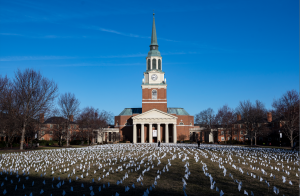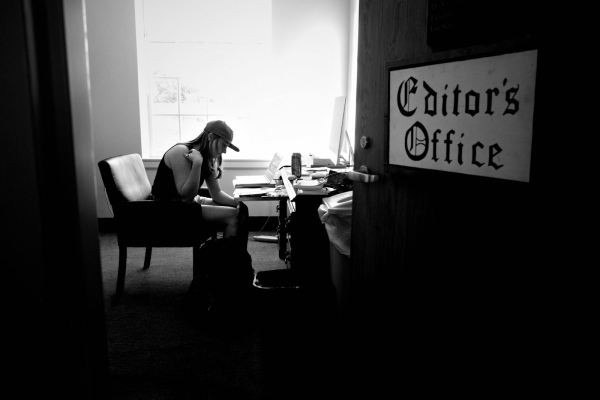University must prepare for potential tragedy
October 1, 2020
On Tuesday, Sept. 29, it was announced that Chad Dorrill, a 19-year-old student at Appalachian State passed away from neurological complications related to COVID-19. Dorrill had no underlying health conditions and was considered to be a “super healthy” college student who was in “tremendous shape,” playing basketball and running often in his free time. The reality of this situation begs the question: is Wake Forest prepared for a student to die of COVID-19?
We know this sounds extreme. But given that this situation, albeit rare, occured at a neighboring university, this reality is not far-fetched. With the University Counseling Center (UCC) significantly understaffed, as has been reported several times by the Old Gold & Black, it is appropriate to consider whether the resources in place could adequately cater to students’ needs should a COVID-19 related death occur. There is already an extremely high demand for counseling services that the university currently cannot meet and our campus has not yet seen any major complications as a result of the virus. Should the situation change, what toll would it take on students’ mental health?
While Wake Forest is doing everything in its power to demand that the university community abide by public health guidelines, the Editorial Board asks that the university do more to proactively prepare for and anticipate a traumatic event. As reported by the Old Gold & Black on page one, the university shared that they were not updating any policies in light of Dorill’s death, but would continue to focus on ensuring that all members of the university community receive quality health care.
The school probably doesn’t need to revamp health guidelines. In fact, Wake Forest is doing relatively well in terms of controlling spread. The real concern present is whether or not the university has the programs and systems in place to deal with the massive loss of a life. Of course we don’t want to have to plan for, think about or experience a death in the community. But a tragedy like this could completely derail our semester, and we should be ready for that possibility.
Ensuring students’ safety has been at the center of the university’s COVID-19 plan. Further, one of the university’s prevailing justifications for opening campus this semester was based on science detailing that younger people are less susceptible to contracting serious symptoms of the virus. But Wake Forest consists of more than its students. Faculty and staff, who are integral members of our community are at heightened risk for contracting the virus. In fact, there are currently six cases among employees. The death of any of these community members would be equally as tragic as that of a student.
When Notre Dame’s student newspaper The Observer wrote a staff editorial titled “Don’t make us write obituaries” in response to campus opening, it shocked the nation. It did so because of their outward acknowledgement of the possibility of death as the result of a college campus opening. More than a month into the semester, we can’t pretend that they were wrong just because it hasn’t happened at Wake Forest yet. Yes, we must remain vigilant and follow public health guidelines. But we should also be able to feel secure in knowing that Wake Forest is prepared to provide support, in so much as it can be, in response to a campus-wide tragedy.

















Henry Koontz • Oct 2, 2020 at 3:53 pm
Students die almost every year at Wake. Why would Wake be less prepared for this than in any other year?